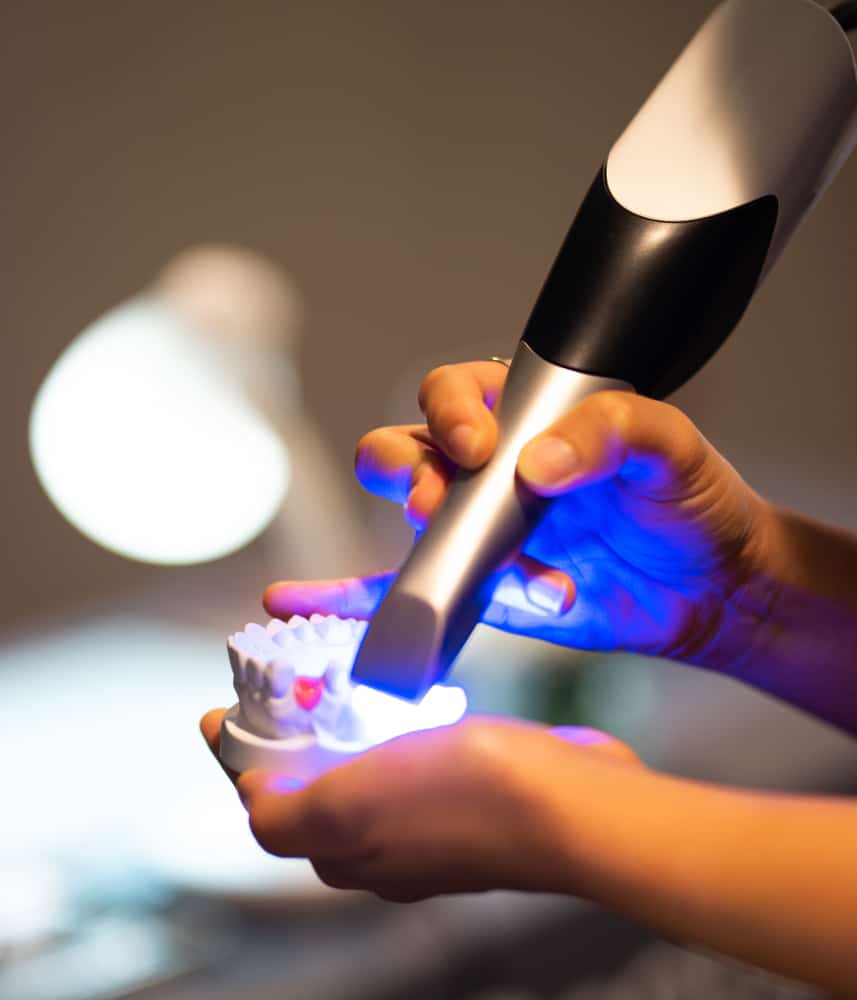Digital Dental Impressions
What is the difference between traditional dental impressions and digital dental impressions?
Traditional impression-taking can involve multiple materials and, on occasion, additional steps. Since this is a highly delicate and professional procedure, it is easier to commit mistakes in any of the various steps involved, whether from the human factor or material defects such as voids, air bubbles, incorrect settings, or distortions. Whereas, in digital dental impression, the dentist records the digital image of the patient’s mouth and fabricates the denture, crowns, or appliance from this visual recording.
Is digital dental impression more efficient than traditional dental impression?
Digital impression systems minimize or remove errors while eliminating much of the effort and guesswork associated with conventional impressions. They save time both during the impression appointment and when the restorations are delivered.
In most cases, digital impression systems remove the need for a return visit to the office since the reconstruction can be made in the dentist’s office rather than delivered to a laboratory. The restoration can be fabricated quicker in most cases due to reducing the working time required for conventional materials and shipping times.
Digital impressions eliminate the need for traditional techniques, where impression materials are placed in the mouth for up to five minutes. This helps patients who are claustrophobic or afraid of gagging to feel more relaxed during the procedure. This advanced technology has enabled many patients to complete much-needed dental work that they might have missed in the past due to the use of traditional impressions.
The device can also show a color indicator if there are any areas of insufficient tooth reduction. This enables dentists to automatically adjust tooth reduction to ensure that planned restorations suit comfortably and work properly.
Additional scans can be layered onto the original virtual model using digital impression technology for improved visual representation. A repeat scan to capture an updated or voided image enhances the previous virtual model while adding no new errors. The model is only updated with previously missing data. The further scans that are applied, the more precise the virtual model becomes; this is the inverse of a typical physical impression.
What are the benefits of digital impressions?
- Image/impression consistency has been improved for better-fitting restorations.
- It is helpful for patients with gag reflexes because there are no unpleasant impression materials involved in the process.
- Patients and the dental staff would have a more relaxed, less nervous experience.
- Impression-taking errors are reduced, and material inaccuracies are eliminated, resulting in fewer restoration mistakes.
- Patients enjoy modern technologies and cutting-edge dental care, so they become more interested in and better educated about the treatment process when seeing their impressions on-screen chairside.
- The scan of the teeth being replaced and the opposing teeth and bite takes just three to five minutes.
- The digital impression can be stored digitally secure, saving space, contributing to efficient recordkeeping, and promoting a paperless world.
Looking for the best dental implants in Cordova, TN?
Dr. Adatrow can help!
If you have any further questions about oral health, you can schedule a consultation with Dr. Adatrow. Dr. Adatrow has more than 18 years of experience in placing dental implants, with a success rate of over 97%, and can provide you with the best possible dental treatment. He is a Board-Certified Prosthodontist and Periodontist. Please contact our office to schedule your consultation now!

